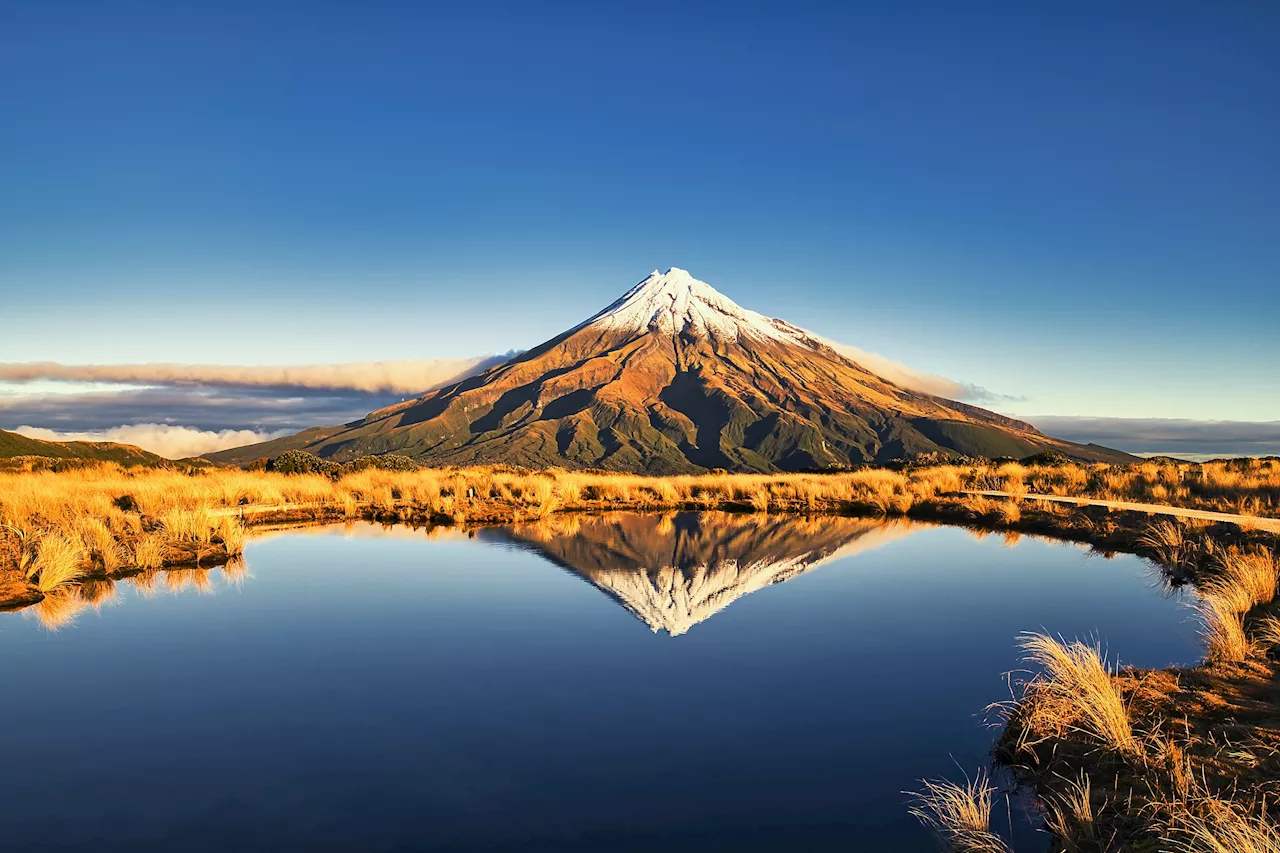Mount Taranaki, now known as Taranaki Maunga, has been granted personhood in New Zealand, recognizing the mountain's spiritual and cultural significance to Māori people. This move acknowledges past injustices and aims to protect the mountain's health and wellbeing.
Mount Taranaki, now known as Taranaki Maunga , its Māori name, is the latest natural feature to be granted personhood in New Zealand . Considered an ancestor by Indigenous people, it was recognized as a legal person on Thursday after a new law granted it all the rights and responsibilities of a human being. The pristine, snow-capped dormant volcano is the second highest on New Zealand 's North Island at 2,518 meters (8,261 feet) and a popular spot for tourism, hiking and snow sports.
The legal recognition acknowledges the mountain’s theft from the Māori of the Taranaki region after New Zealand was colonized. It fulfills an agreement of redress from the country's government to Indigenous people for harms perpetrated against the land since. \The law passed Thursday gives Taranaki Maunga all the rights, powers, duties, responsibilities and liabilities of a person. Its legal personality has a name: Te Kāhui Tupua, which the law views as “a living and indivisible whole.' It includes Taranaki and its surrounding peaks and land, “incorporating all their physical and metaphysical elements.” A newly created entity will be “the face and voice” of the mountain, the law says, with four members from local Māori iwi, or tribes, and four members appointed by the country's Conservation Minister. \Paul Goldsmith, the lawmaker responsible for the settlements between the government and Māori tribes, told Parliament in a speech on Thursday: “The mountain has long been an honored ancestor, a source of physical, cultural and spiritual sustenance and a final resting place.' But colonizers of New Zealand in the 18th and 19th centuries took first the name of Taranaki and then the mountain itself. In 1770, the British explorer Captain James Cook spotted the peak from his ship and named it Mount Egmont. In 1840, Māori tribes and representatives of the British crown signed the Treaty of Waitangi — New Zealand's founding document — in which the Crown promised Māori would retain rights to their land and resources. But the Māori and English versions of the treaty differed — and Crown breaches of both began immediately. In 1865, a vast swathe of Taranaki land, including the mountain, was confiscated to punish Māori for rebeling against the Crown. Over the next century hunting and sports groups had a say in the mountain's management — but Māori did not. “Traditional Māori practices associated with the mountain were banned while tourism was promoted,” Goldsmith said. But a Māori protest movement of the 1970s and '80s has led to a surge of recognition for the Māori language, culture and rights in New Zealand law. Redress has included billions of dollars in Treaty of Waitangi settlements — such as the agreement with the eight tribes of Taranaki, signed in 2023. \Debbie Ngarewa-Packer, a co-leader of the political party Te Pāti Māori and a descendant of the Taranaki tribes, said: “Today, Taranaki, our maunga, our maunga tupuna, is released from the shackles, the shackles of injustice, of ignorance, of hate,' using a phrase that means ancestral mountain.The mountain's legal rights are intended to uphold its health and wellbeing. They will be employed to stop forced sales, restore its traditional uses and allow conservation work to protect the native wildlife that flourishes there. Public access will remain.New Zealand was the first country in the world to recognize natural features as people when a law passed in 2014 granted personhood to Te Urewera, a vast native forest on the North Island. Government ownership ceased and the tribe Tūhoe became its guardian. “Te Urewera is ancient and enduring, a fortress of nature, alive with history; its scenery is abundant with mystery, adventure, and remote beauty,” the law begins, before describing its spiritual significance to Māori. In 2017, New Zealand recognized the Whanganui River as human, as part of a settlement with its local iwi. The bill recognizing the mountain's personhood was affirmed unanimously by Parliament's 123 lawmakers. The vote was greeted by a ringing waiata — a Māori song — from the public gallery, packed with dozens who had traveled to the capital, Wellington, from Taranaki. The unity provided brief respite in a tense period for race relations in New Zealand. In November, tens of thousands of people marched to Parliament to protest a law that would reshape the Treaty of Waitangi by setting rigid legal definitions for each clause. Detractors say the law — which is not expected to pass — would strip Māori of legal rights and dramatically reverse progress from the past five decades
Taranaki Maunga Personhood New Zealand Māori Treaty Of Waitangi Indigenous Rights Environmental Protection Te Urewera
United States Latest News, United States Headlines
Similar News:You can also read news stories similar to this one that we have collected from other news sources.
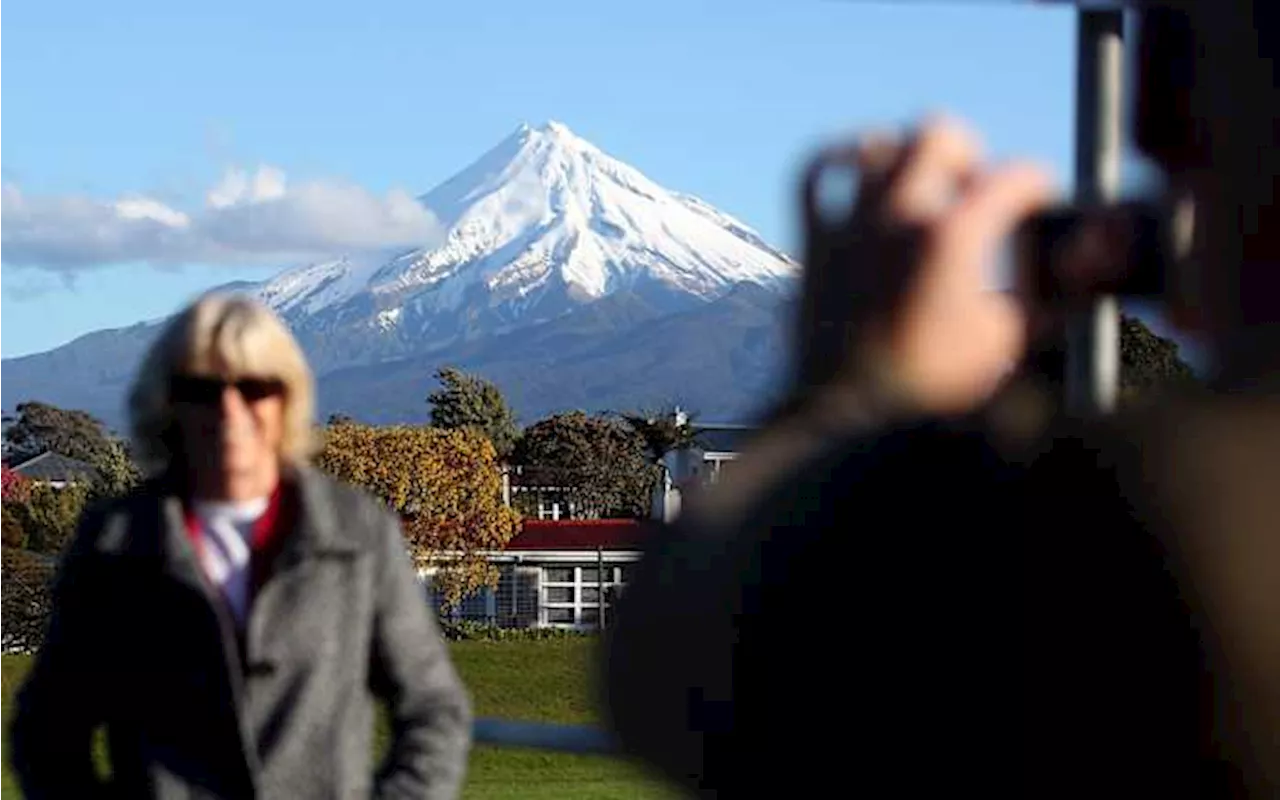 New Zealand Grants Legal Rights to Mount TaranakiMount Taranaki, a revered volcano in New Zealand, has been formally recognized as a legal person, granted the same rights and responsibilities as a human. This landmark move signifies an important step in acknowledging the cultural and spiritual significance of the mountain to the indigenous Māori people.
New Zealand Grants Legal Rights to Mount TaranakiMount Taranaki, a revered volcano in New Zealand, has been formally recognized as a legal person, granted the same rights and responsibilities as a human. This landmark move signifies an important step in acknowledging the cultural and spiritual significance of the mountain to the indigenous Māori people.
Read more »
 New Zealand's Mount Taranaki is now legally a personA rare white bison calf was sighted at Yellowstone National Park, bringing indigenous tribes together for a spiritual ceremony. They say the birth of the special American buffalo is a prophecy fulfilled, but also that there's a wider message that needs to be heard.
New Zealand's Mount Taranaki is now legally a personA rare white bison calf was sighted at Yellowstone National Park, bringing indigenous tribes together for a spiritual ceremony. They say the birth of the special American buffalo is a prophecy fulfilled, but also that there's a wider message that needs to be heard.
Read more »
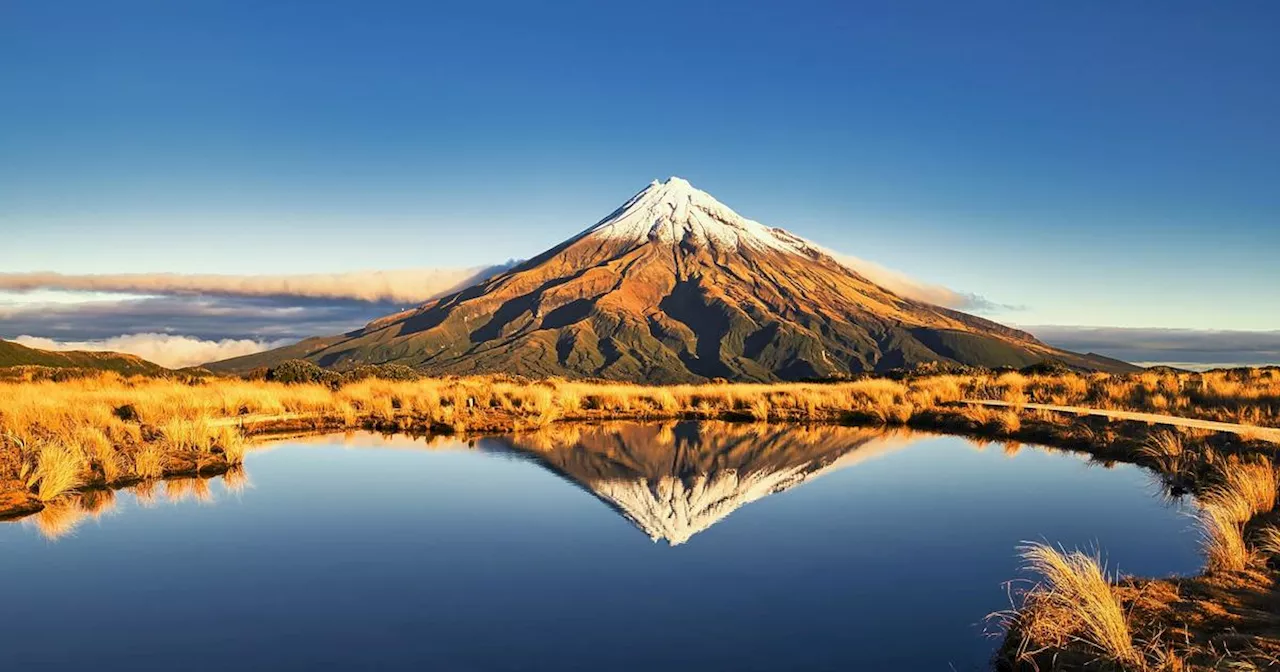 New Zealand Recognizes Mount Taranaki as a Legal PersonMount Taranaki, a sacred mountain in New Zealand, has been granted legal personhood, marking a significant step in recognizing the rights of Indigenous people and the natural world. The mountain, now known as Taranaki Maunga, is the latest in a series of natural features in New Zealand to be granted personhood, following the recognition of Te Urewera National Park and the Whanganui River.
New Zealand Recognizes Mount Taranaki as a Legal PersonMount Taranaki, a sacred mountain in New Zealand, has been granted legal personhood, marking a significant step in recognizing the rights of Indigenous people and the natural world. The mountain, now known as Taranaki Maunga, is the latest in a series of natural features in New Zealand to be granted personhood, following the recognition of Te Urewera National Park and the Whanganui River.
Read more »
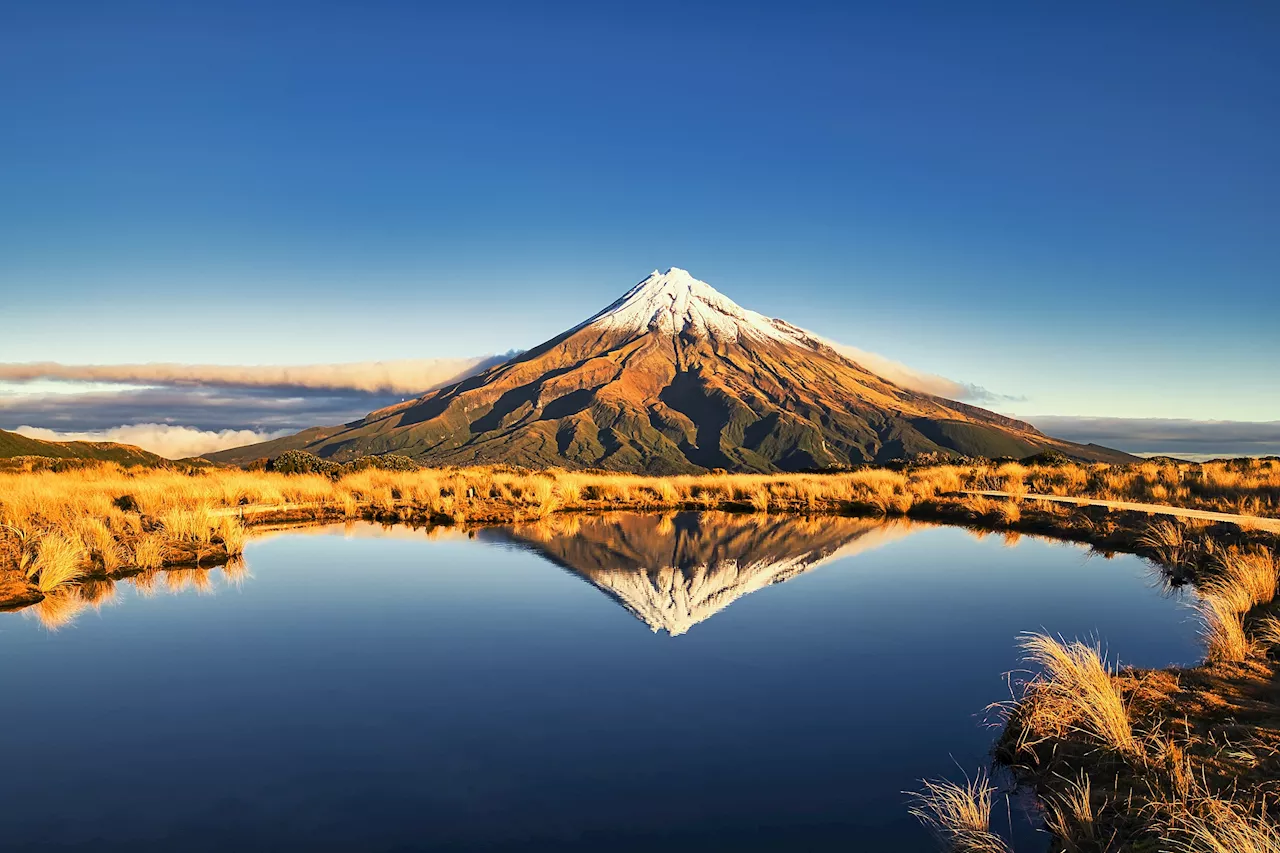 Mount Taranaki Granted Personhood in New ZealandMount Taranaki, now officially known as Taranaki Maunga, has become the latest natural feature in New Zealand to be granted personhood. This recognition acknowledges the mountain's cultural and spiritual significance to Māori people, who consider it an ancestor. The legal status grants Taranaki Maunga all the rights and responsibilities of a human being, aiming to protect its health and well-being while addressing historical injustices.
Mount Taranaki Granted Personhood in New ZealandMount Taranaki, now officially known as Taranaki Maunga, has become the latest natural feature in New Zealand to be granted personhood. This recognition acknowledges the mountain's cultural and spiritual significance to Māori people, who consider it an ancestor. The legal status grants Taranaki Maunga all the rights and responsibilities of a human being, aiming to protect its health and well-being while addressing historical injustices.
Read more »
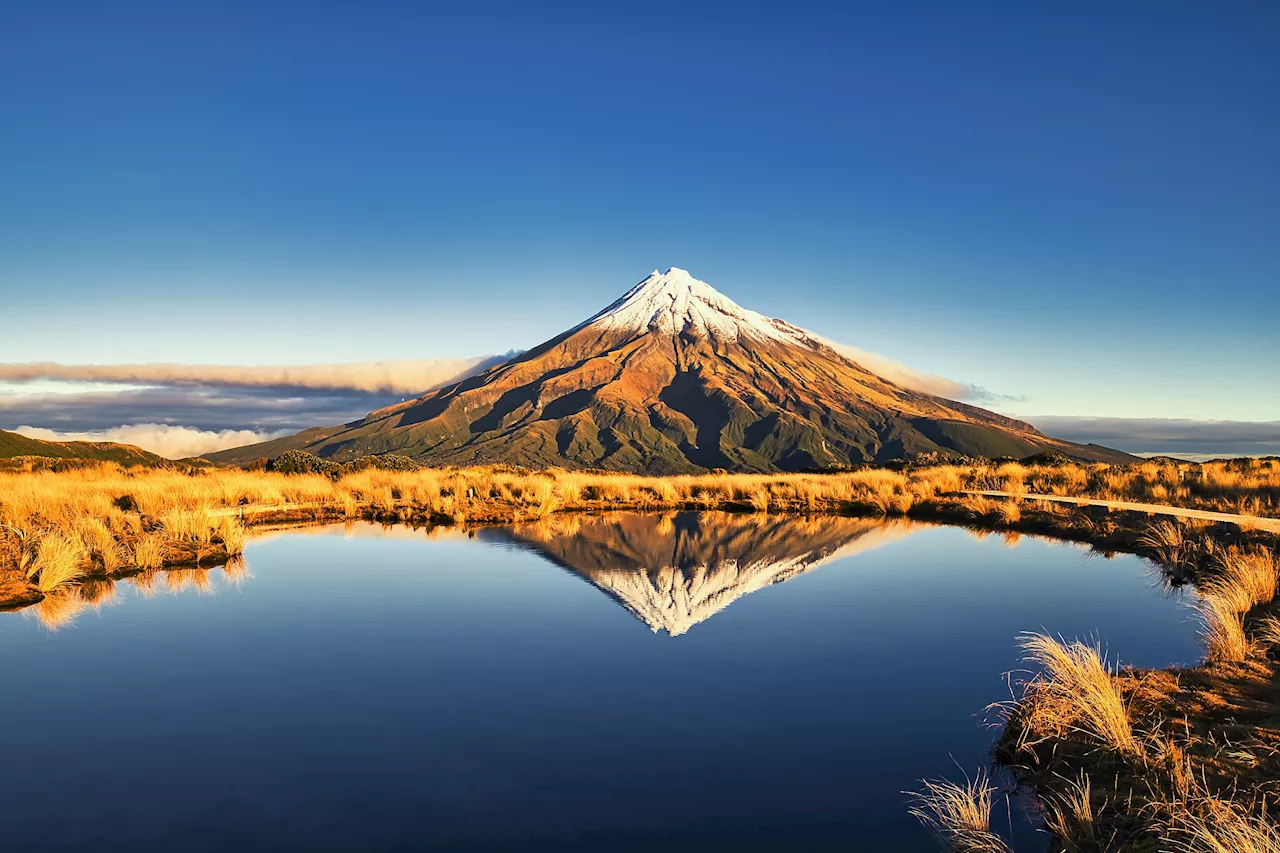 A New Zealand mountain is granted personhood, recognizing it as sacred for MāoriMount Taranaki — now known as Taranaki Maunga, its Māori name — is the latest natural feature to be granted personhood in New Zealand.
A New Zealand mountain is granted personhood, recognizing it as sacred for MāoriMount Taranaki — now known as Taranaki Maunga, its Māori name — is the latest natural feature to be granted personhood in New Zealand.
Read more »
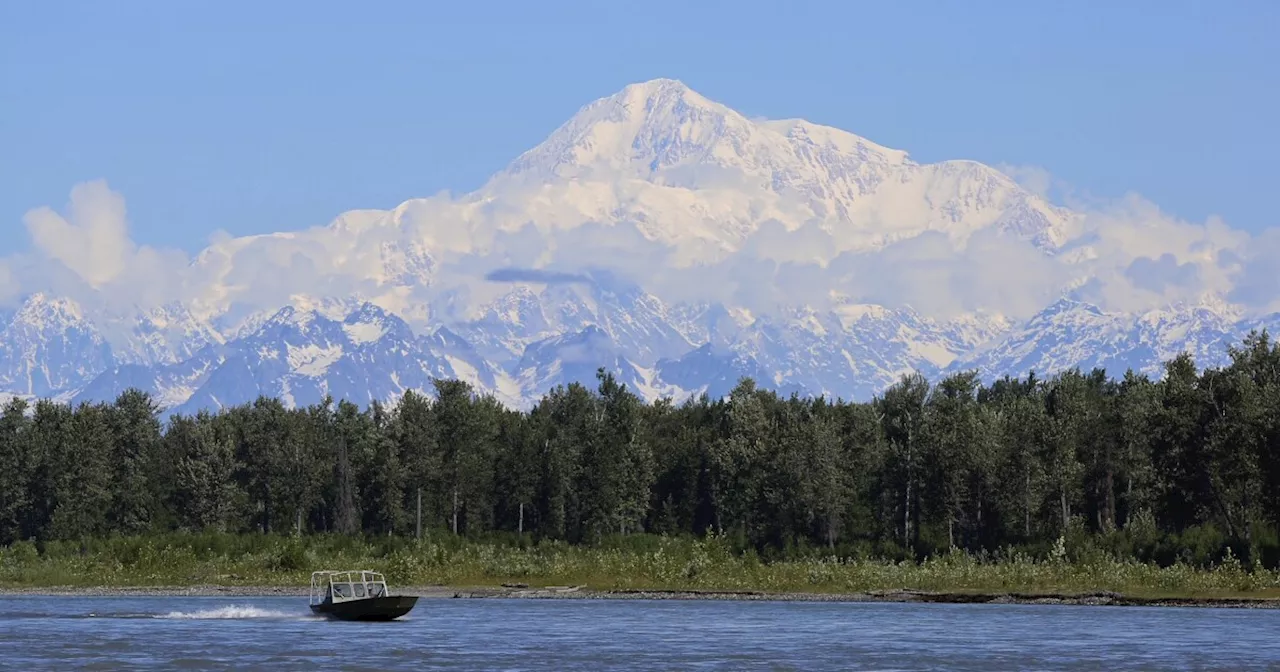 Trump Vows to Revert Mount Denali Back to 'Mount McKinley'President Trump plans to rename Mount Denali back to 'Mount McKinley' during his presidency, sparking debate about honoring indigenous history and cultural recognition.
Trump Vows to Revert Mount Denali Back to 'Mount McKinley'President Trump plans to rename Mount Denali back to 'Mount McKinley' during his presidency, sparking debate about honoring indigenous history and cultural recognition.
Read more »
